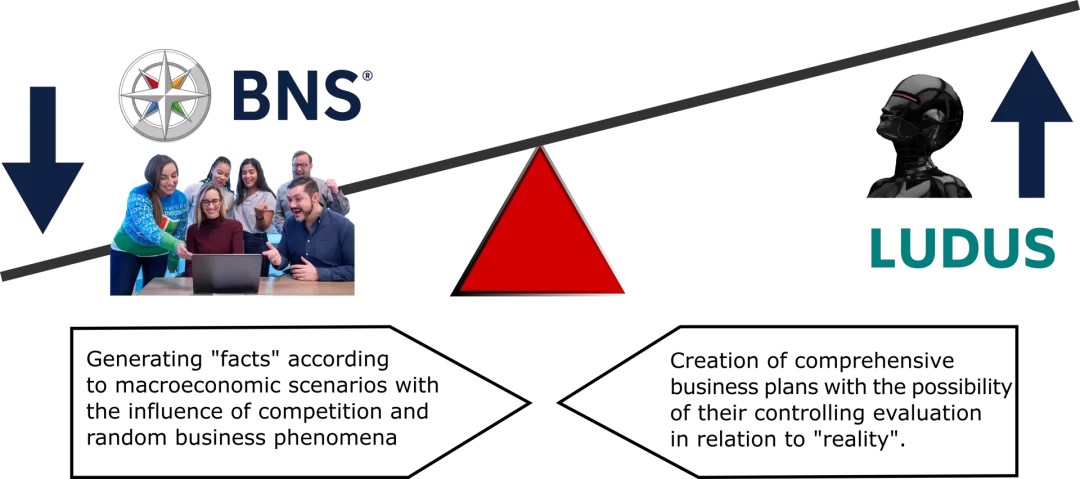BUSINESS NAVIGATION GAME
Business Navigation Game
Learning through play at university? Prepare your students for real-world practice with a sophisticated simulation tool.
Learning through play at university? Prepare your students for real-world practice with a sophisticated simulation tool.
Learning through play at university? Why not! We’ve tried it out. Such teaching not only makes the students have more fun, but also prepares them better for practice. Thanks to the integrated BNS–LUDUS solution, where we combined the BNS management information system used in hundreds of companies in the Czech Republic and abroad and the LUDUS simulation software implemented in hundreds of universities around the world, including the Czech Republic, into one functional unit. This unique unit allows us to use a simulation game within the study, in which students can actually try out what their work as managers in the field of planning and controlling will look like and how they will stand up in a competitive environment. BNS–LUDUS supports tactical and strategic planning using the Balanced Scorecard methodology.

BUSINESS NAVIGATION GAME


Two to five groups of students form teams – businesses that compete against each other with two or three products in up to four markets simultaneously. At the beginning, they are all in the same situation. They act essentially as independent competitors. They do not form cartels, do not enter into cooperation agreements and do not exchange experience.
Each virtual company is represented by its management. This is composed of 3 to 8 students. At the beginning of the simulation, each team chooses its CEO, who is responsible for the cooperation with the game leader (educator). They also monitor adhering to the deadline for entering the decision data for the playing period, which covers a time period – a quarter. The data for the quarter must first be entered into the system and agreed within the team. The data is then processed in the system and projected to the users as a basis for their decisions.
All teams independently derive other sub-goals from the main goal and determine their order. They then select the corresponding actions to be implemented in the form of decisions in each functional area of the enterprise. Meeting a target indicator (e.g. cumulative profit after tax) is a criterion for assessing the success of competing enterprises.
Once the data is entered and reconciled by the team, the data is processed in the system and projected back to the users to support decisions for the next quarter.
In the BNS – Strategy Map environment, players design a strategy within their responsibilities in the enterprise. Once it is agreed, it is transformed into a business plan corresponding to the length of the game (up to 12 periods/quarters). This plan is developed in the full range of functional areas – sales performance, cost performance and profitability, financial performance and resources and potentials. The completed plan must then be agreed again by a team representing the management of the business. It is then automatically uploaded into the market simulation (LUDUS) together with the plans of the other student groups. Participants in the „Business Navigation Game“ are then informed immediately how their plan has been received by the market and receive the basis for the next forecast and the decisions they have to make in the next round. Each team will receive information on the results achieved at the end of one quarter and before the beginning of the next quarter:
If the expectations have not been met, the strategy needs to be modified.
Read the latest news from financial planning and BI data processing, as well as invitations to interesting events and webinars. We will send you inspiring content a maximum of 4 times a year.
Read the latest news from financial planning and BI data processing, as well as invitations to interesting events and webinars. We will send you inspiring content a maximum of 4 times a year.
© 2023 INEKON SYSTEMS s.r.o., the member of the ABRA Holding group, Jeremiášova 1422/7b, 155 00, Praha 13, Czech Republic, IČO: 27252167. Processing of personal data policy.